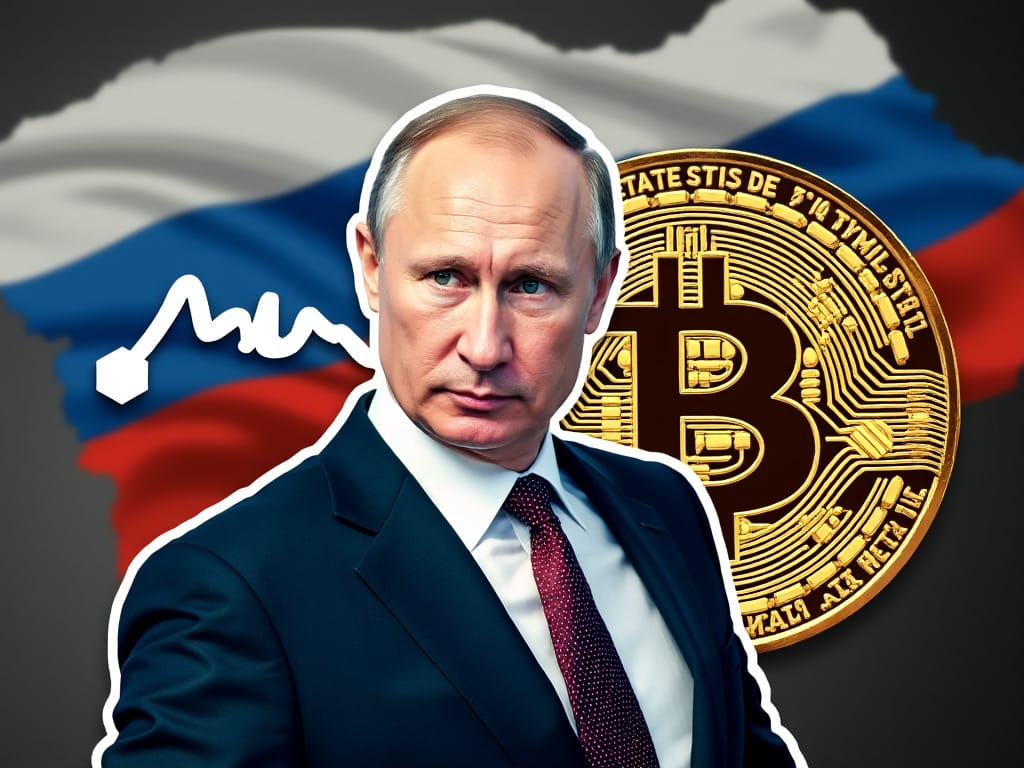Russia’s President Vladimir Putin Officially Recognizes Bitcoin and Crypto as Property

Russia has taken a significant step forward in its embrace of digital currencies, officially recognizing Bitcoin and other cryptocurrencies as a form of property within the realm of international trade. This legal acknowledgment comes from a new law signed by President Vladimir Putin, signaling a shift towards integrating digital assets into the broader economic framework of the country.
Under this new experimental legal regime (ELR), Russia is not only acknowledging these digital assets but is also setting the stage for a more crypto-friendly environment. The law specifically addresses the taxation and operational aspects of cryptocurrency, particularly focusing on mining and trading activities.
The legislation provides a tax relief by exempting cryptocurrency sales and mining from value-added tax (VAT), which traditionally burdens financial transactions. This exemption could encourage both individuals and businesses to engage more actively with cryptocurrencies. Miners in Russia will see their income classified as "income in kind," subject to taxation at market rates, with allowances for mining expenses. However, this benefit comes with obligations; corporate entities will have to pay a 25% corporate tax on their mining revenues starting in 2025.
Operators of Bitcoin mining facilities must report their activities to tax authorities, or face a penalty of up to 40,000 rubles for non-compliance. This measure ensures that the government maintains oversight while fostering an environment conducive to mining operations.
Taxation of Cryptocurrency Gains
The taxation of cryptocurrency profits is another critical component of this law. Russia has introduced a progressive tax system for digital currency transactions. Gains from buying, selling, or trading cryptocurrencies are taxed at 13% for incomes up to 2.4 million rubles, with the rate increasing to 15% for incomes exceeding this threshold. This structured approach to taxation aims to integrate cryptocurrencies into the tax system while preventing evasion, which could have been rampant in an unregulated environment.
This legislative move by Russia does more than just recognize digital currencies; it positions them as pivotal in the nation's economic strategy. By allowing cryptocurrencies like Bitcoin to become more central in economic policies, Russia is not only looking to strengthen its control over this burgeoning sector but also to push forward in the global de-dollarization movement. The recognition of cryptocurrencies as property in international trade can be seen as a direct challenge to the dominance of traditional currencies, particularly the US dollar, in global finance.
With leaders like Donald Trump and Vladimir Putin showing support for cryptocurrencies, there's a growing trend of high-profile political endorsement of digital assets. This could lead to a broader acceptance of cryptocurrencies in international trade, potentially altering the dynamics of global financial systems.
Russia's latest legislative action is a clear signal of its intention to be at the forefront of a new financial era where digital currencies play a significant role. It reflects a strategic move towards embracing technological advancements in finance, which could set a precedent for other nations contemplating similar integrations. This development not only validates the role of cryptocurrencies in modern economies but also highlights Russia's proactive stance in reshaping its economic landscape amidst global financial shifts.

